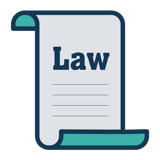How might this right be relevant to my life?
The Human Rights Act protects our right to free elections. These elections must be held regularly, and you have to be able to vote in secret. Under our human rights law in the UK, voting is a right, not a privilege.
This right is very important as free elections are central to working democracies. Voting rights are also important to other human rights protected by the Human Rights Act including freedom of expression (Article 10) and freedom of assembly (Article 11).
The right to free elections includes:
- The right to vote. Voting allows you to have a say on which person or party wins an election. Voting is one of the most common ways for people to have their voice heard by people in power.
- The right to stand in elections to become a Member of Parliament or local government.
You can ask the public official about their decision or action and ask them to tell you how it was lawful, legitimate and proportionate.
If you can think of a way to deal with this situation or decision that is less restrictive to you then you can raise it with the public official as the decision may not be proportionate.









